John Sonmez – How to Market Yourself as a Software Developer
$31.00$299.00 (-90%)
This checklist walks through all of the steps in the How to Market Yourself as a Software Developer system on one page.
John Sonmez – How to Market Yourself as a Software Developer
How to Market Yourself as a Software Developer is a systematic way to build up your reputation, authority and goodwill.
By always looking to give enormous value before you ask for anything in return.
When you do this consistently, you’ll find that you’re no longer struggling to chase opportunities.
Instead, you’re attracting the very best opportunities to come to YOU.
And as your career grows YOU grow, becoming a better and more fulfilled software developer.
This course contains my entire system for:
Landing the job you’ve always wanted-solving challenging problems, pushing yourself to develop your technical skills, and working with people who share your passion for the craft of software development
Earning a raise of 20%, 50% or even as much as 300% over the coming months and years
Creating your own “safety net” of career opportunities so you never have to worry about where your next paycheck will come from-this is TRUE security
Building a reliable feeder system for 4- and 5-figure freelancing and consulting work
Creating a platform for launching your own profitable business as an entrepreneur, either by selling your knowledge or by creating a software product
Enjoying more satisfaction in your day to day work
Mastering your craft and continuing to improve your skills and productivity
Building relationships that can lead to profitable business opportunities down the road
Earning more respect from your team and manager and a voice in making critical decisions
Developing the confidence to stand up for yourself-and even walk away from a toxic job
Here’s How It All Works.
The course is presented in 6 modules, each building on the ideas in the previous modules, brick by brick, until you’ve assembled your new career-enhancing platform.
In each module, I’ll personally walk you through a handful of key concepts.
Then I’ll show you the practical, step-by-step actions to take that will quickly begin to build your reputation and authority in your chosen niche-and start earning the respect your knowledge and accomplishments deserve.
Here’s just a glimpse of what you’ll discover:
Module #1 – Why Marketing Yourself Is Important (And How to Get Started)
This module lays the foundation for everything else in the course.
To start, we’re going to bulldoze away a whole pile of lies that have roadblocked your success in your career up until now.
Lies about what it means to be a professional. Lies about your skills and your true value. Lies about what companies really want and need in the developers they hire.
The mindset shift you’ll make here is critical. Without it, any marketing techniques you try will likely backfire and leave you feeling cheap and unprofessional.
Then I’ll show you the crucial building blocks in your new “authority-building” plan.
You’ll see how all the pieces fit together at both a “strategic” level (the “what” and “why”) as well as a “tactical” level (the “how”).
In this no fluff, 13-chapter PDF you’ll discover:
The devastating consequences of trying to “opt out” of marketing yourself. Choosing this path means surrendering your future to the corporations you work for
The secret criteria that interviewers use to pass judgment on you (they all do this, ESPECIALLY the ones who swear they don’t)
Why the conventional wisdom about marketing is completely backwards-and how reversing the broken “marketing equation” is the key to building your reputation as a professional
How to ensure that your ideal employers keep bumping into you everywhere they turn, until you become the “obvious expert” that everyone turns to
Should you market yourself under your own name, or create a standalone company? The pros and cons of both, plus the “Goldilocks Strategy” that just could be the best of both worlds
And a LOT more.This cornerstone module has been offered elsewhere for a suggested price of $29.
Module #2 – Building A Brand
Now that you understand what marketing IS (and just as importantly, what it ISN’T), you’re ready to begin building your own marketing plan.
And it all starts with establishing your brand.In this 8-chapter “crash course,” I’ll walk you step by step through the process of developing your brand-which is the image you project in the software community.
You’ll finally get clear about where your career is headed, and how you can reach your goals while staying true to your core identity.
I’ll also show you:
How “Casual Friday” can torpedo your career, and how to know what you should wear in any job situation
Why building a brand is NOT about “all sizzle and no steak,” and how you as a developer MUST create a brand based on substance, skill and expertise
How Apple established itself as a premium brand, and how you can follow in Steve Jobs’ footsteps to melt away resistance the next time you’re negotiating your salary or pay bump
The “Plumber Principle” that ensures they call YOU first the next time a great job opens up
A subtle branding pitfall that makes you look like an amateur to your friends and colleagues (and leaves you feeling like a phony), plus the way to stay professional and authentic in your marketing
How to harness your “weaknesses” and play off your personal flaws and failings to attract new and exciting opportunities
The real reason most developers never reach their potential, and how you can be an outlier whose success is all but guaranteed
The 8 chapters in this module span 106 minutes of HD-quality video. All videos are DRM free and downloadable in .mp4 format for playback on the device of your choosing.
This module contains as much meaty content as courses I’ve sold for $147, but I’ve decided to include it here as part of the low package price.
2
Module #3 – Creating A Blog
If your brand is the dent you plan to leave in the world, a blog is the sledgehammer you’ll use to make that impression.
Your blog is your “home base,” a digital avatar that shows the software development community what you stand for.
Creating a successful blog is like a Jedi building their lightsaber. It’s a rite that marks your passage into maturity as a programmer.
When you have a well-maintained blog, your peers sit up and take notice of what you have to say. And potential employers and clients know that you are a serious practitioner of your craft.
In this 154-minute, 7-chapter video series, you’ll watch over my shoulder as I show you how to “build your lightsaber.” You’ll see behind the scenes of how I work at Simple Programmer, including the tools and workflow I’ve used to build a blog that receives more than 1.5 million page views a year.
You’ll also discover:
Why following the lead of popular bloggers like Seth Godin could set you up to have your ideas censored, and what you can to do protect your ideas and your voice
The 3 common “blockers” that kill most software development blogs-and the steps you can take to ensure yours doesn’t become a casualty
A critical lesson you can learn from the top 20 websites in the world to get your blog up quickly. (Many developers turn their nose up at this, only to find that maintaining their site becomes a huge burden.)
The single most important step to take with your blog even BEFORE you buy a domain name or draft that first “hello world” post. Skip this and you may end up starting over from scratch. Get it right, and creating your site becomes much, much easier
Why the common approach of using a blog as a place to “park” code samples and snippets from your latest projects doesn’t cut it, and the 5 ways that your blog can propel you forward in your career
By the time we’re done, you’ll have a blog you’ll be proud to show to your peers and colleagues.
This module could easily sell for as much as $147 by itself, but it’s include in the low package price.
Module #4 – The Complete Guide to Getting Your Name Out There
You’ve defined your brand, and you’ve built your “home base.”
The next task is capturing the attention of your fellow developers-and the team leads and hiring managers at companies you might want to work for.
Many developers jump straight to this step without laying the groundwork that we covered in the first 3 modules. As a result they wind up running in circles-and decide that “marketing yourself doesn’t work.”
But you won’t have that problem, thanks to the firm foundation you established in modules 1-3. Now you’re in a great position, where every little bit of legwork goes a long way, and each tiny win moves you further down your chosen path.
This module is a whirlwind tour through all of the different tools you can deploy to start to build your reputation and audience. And there have never been so many ways to get your message in front of the right people.
In this 9-chapter, full color PDF I’ll show you more than 2 dozen techniques for getting people to sit up, take notice, and even start to look to you as an authoritative voice in your field.
My suggestion: Pick 2-3 methods that play to your natural strengths and interests and focus on those.
With so many options to choose from, you DON’T have to do anything that’s too far outside your comfort zone. This way you can “get your name out there” without feeling inauthentic, phony or pushy.
In this module, I’ll show you:
A way to “cascade” wins into bigger wins, triggering a virtuous cycle where your successes quickly compound
2 sources for traffic that can send a flood of new readers to your blog. (Caution: this can bring your website to its knees)
How to use multi-channel leverage to dramatically increase the impact of your online authority-building efforts
The #1 biggest frustration of first-time bloggers, and 3 ways to zip past the “lost in the wilderness” phase that sucks the life out of most new blogs
How to tap into “instant audiences” and get your name in front of influential developers who aren’t yet reading your blog
This book is NOT available for sale anywhere else.4
Module #5 – The Ultimate Developer’s Guide to Social Networks
Social media just might be the single best way to “get your name out there”-it’s so important I’ve devoted an entire module to it.
To make social media work for you (and not against you) requires a solid strategy. This module kicks off with a look at what social media can and (just as important) CAN’T do to help you build an audience and advance your career.
Then we’ll see how each social “channel” can fit into your overall plan.
You’ll also learn:
A common social media blunder that diminishes your standing, robs you of the respect you’ve earned, and even cause your followers to feel embarrassed for you (the “kiss of death” for your career)
What branding “puzzle pieces” you MUST have in place before you start firing off tweets
The “thermostat principle” for turning casual acquaintances into loyal fans
3 often overlooked ways to build your social media following
How to use social media to “be everywhere” without looking like an obnoxious self-promoter
This 9-chapter module is presented in a downloadable 58-page, full-color PDF.
Module #6 – Resume Advice that will Make or Break You
Ever find a job that looked perfect, send in your resume, and then. Crickets?
More developers lose out on potential job opportunities due to resume mistakes than for any other reason.
Whether you’re applying for a job yourself or responding to an invitation from a company that’s eager to recruit you, there’s a lot hinging on your resume.
In module 6, I’ll show you how to steer clear of the resume mistakes that can torpedo your chance to land your dream job.
This quick-reading 14-page PDF will point out:
The #1 resume flaw that gets your resume sent straight to the “round file” (aka the trash), never to be seen again. Avoid this and you’ll immediately eliminate half your competitors for a given position
A resume prep protip that will save you time-while also guaranteeing you’ll be taken seriously as a candidate. (Even if you take nothing else away from this entire course, following this one pointer could be worth thousands of dollars if you put it into action)
The job seeker blunder many developers make when scrambling for work. What seems “efficient” to you can actually make your application stink of desperation, causing an otherwise interested employer to say “Thanks, but I’ll pass”
How applying a technique from Agile methodology to your job hunt can get you MORE interviews and offers with far LESS time and effort
A way to shift the focus off your “thin” work experience and impress hiring managers with your skills, knowledge and work ethic (especially important for new graduates and mid-career “job switchers” looking to break into programming)
market-yourself
With These 6 Modules You’ll Create
A Rock-Solid Foundation
For Your Career.
But I wanted to load up your “tool kit” with even more career-building tools, so here’s what I came up with:
Bonus #1 – 11 Successful Software Developers Spill Their Career Secrets
This course is like a set of Lego bricks. You can mix and match them many different ways to build the future YOU want.
That’s why I decided to sit down 1-on-1 with 11 software developers to find out how they have applied these principles in their own careers.
The programmers you’ll meet in these interviews run the gamut from “celebrity developers” like Robert “Uncle Bob” Martin and Jeff Atwood to workaday programmers who’ve more recently discovered the power of building a brand.
In these conversations you’ll learn:
How Uncle Bob spent 25 years as an obscure developer before stumbling into his brand, and how he “accidentally” found himself writing a book (plus some insider tips on the publishing industry)
The savvy career move that Microsoft MVP and PluralSight author Dan Wahlin made that boosted his credibility and started his rise to prominence
How JavaScript and Node.js maestro Derick Bailey’s blog earned him the respect of one of his programming idols
A powerful way to destroy writer’s block and never run out of blogging ideas from Stack Overflow founder Jeff Atwood
How ASP.NET developer Josh Earl built an audience around a text editor that earned him more than $50,000 in side income
Mozilla developer evangelist Christian Heilman’s #1 recommendation for what to put on your blog that will make you stand out to potential employers
How popular conference speaker John Papa went from unknown to in-demand, packing out rooms at major development conferences
How Google engineer Jon Skeet became the “Chuck Norris of Programming” by helping other developers solve their toughest problems
The techniques that .NET developer Miguel Castro used to build a high-paying business as a software consultant
A “gross” hack that SQL DBA Pinal Dave used to grow his blog from 180 visitors in month 1 to 1.8 million users over 7 years
How web developer and PluralSight author Rob Conery rode an open source project to prominence-and a sweet job at Microsoft
These video interviews span more than 4 hours. And each of these 11 developers value their time at a MINIMUM of $150 per hour. (Several of them bill at $250 an hour or more.)
That means this collection is easily worth $600 based on sheer “time on the clock.” (But the insights you’ll glean are worth far more that that.)
Bonus #2 – Career Tools Quick Reference Guide
This 2-page PDF gives you one-click access to the 30 career-building tools and resources mentioned in the course (plus an exclusive discount to have your resume polished by a professional CV writer).
Bonus #3 – 29-Step Software Developer Marketing Checklist
This checklist walks through all of the steps in the How to Market Yourself as a Software Developer system on one page.
You can print it off and hang it next to your monitor-it’s your roadmap from unknown developer starting at square one to respected expert, standing side-by-side with the top developers you admire from afar.


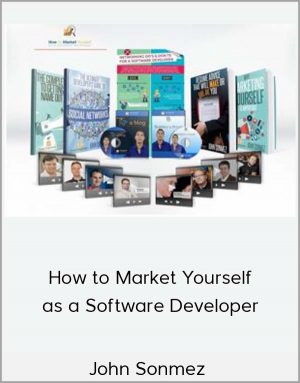
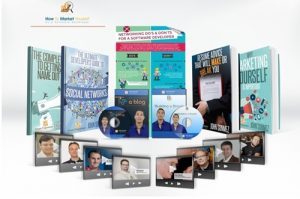




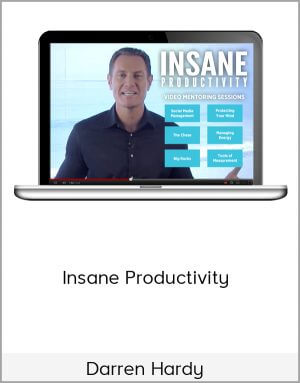
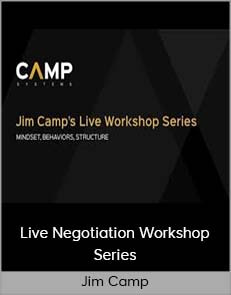
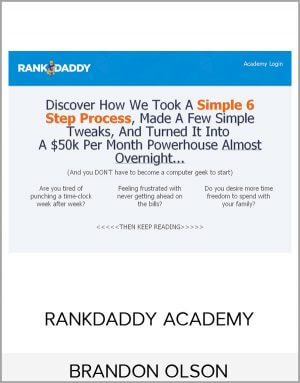
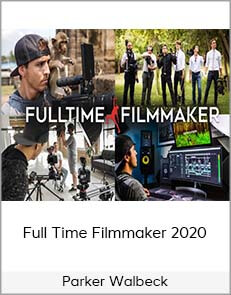




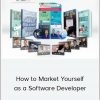
Reviews
There are no reviews yet.